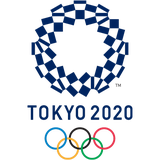





































































































































Dissenter in Russia decision says athletes must be heard
A key dissenter in the decision to reinstate Russia's suspended drug-fighting operation says athletes must be better heard to restore the World Anti-Doping Agency's credibility.
"They're saying: 'Hello, What are you doing? We've lost faith. We don't believe in you any more,'" Linda Helleland, vice president of the World Anti-Doping Agency, told The Associated Press in a phone interview. "If athletes don't believe us, we need to really consider how to get them more involved."
Helleland cast one of two "no" votes in last week's 9-2 decision by the WADA executive committee to reinstate RUSADA. In Washington on Wednesday for meetings with the U.S. government about the fallout from the decision, she said she is certain as ever that her vote was the right one.
"I don't think I'll be alone in taking this position on the way forward," she said.
Helleland, who is the minister of children and equality in Norway, is a candidate to replace Craig Reedie as WADA president next year.
She said she has been moved by the outcry from hundreds of athletes across the globe who are troubled by the decision. On Tuesday night, members of the WADA athlete's commission released a statement saying they were "devastated with WADA's decision to reinstate RUSADA without completion of the road map."
In bringing RUSADA back into the fold, WADA backed off on demands that Russia publicly accept findings of the McLaren Report, which detailed a government-directed program designed to win Olympic medals, and that Russia turn over data and samples from the Moscow anti-doping laboratory that could be used to corroborate possible doping positives.
Reedie defended the decision , saying WADA now has a hard deadline of Dec. 31 for receiving the data, and if Russia doesn't comply, sanctions will go back into effect.
Helleland's analysis of that compromise: "RUSADA hasn't moved, it's WADA that moved. For me, the road map that we chose to stand by is the one we should stand by. We cannot compromise with that."
The RUSADA decision has underscored a growing consensus that athletes are under-represented on WADA and throughout the Olympic world's decision-making process. A WADA governance-review committee is looking at changes that could increase the number of athletes represented in key decision-making groups. Athletes have only one of 12 spots on the executive committee and four of 38 on the foundation board.
"We also need to discuss how we can bring more independence and transparency and democracy into the process," Helleland said.
